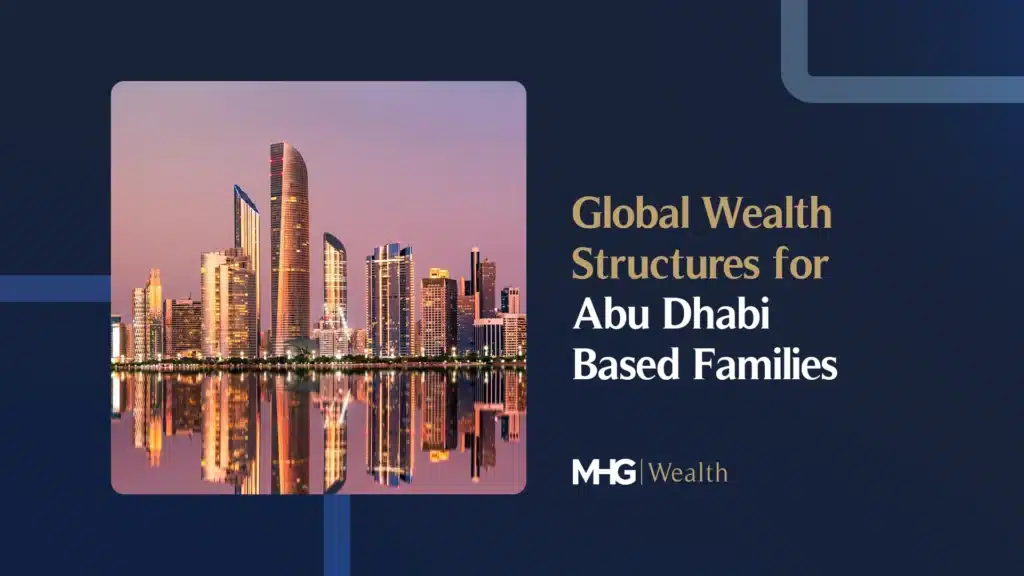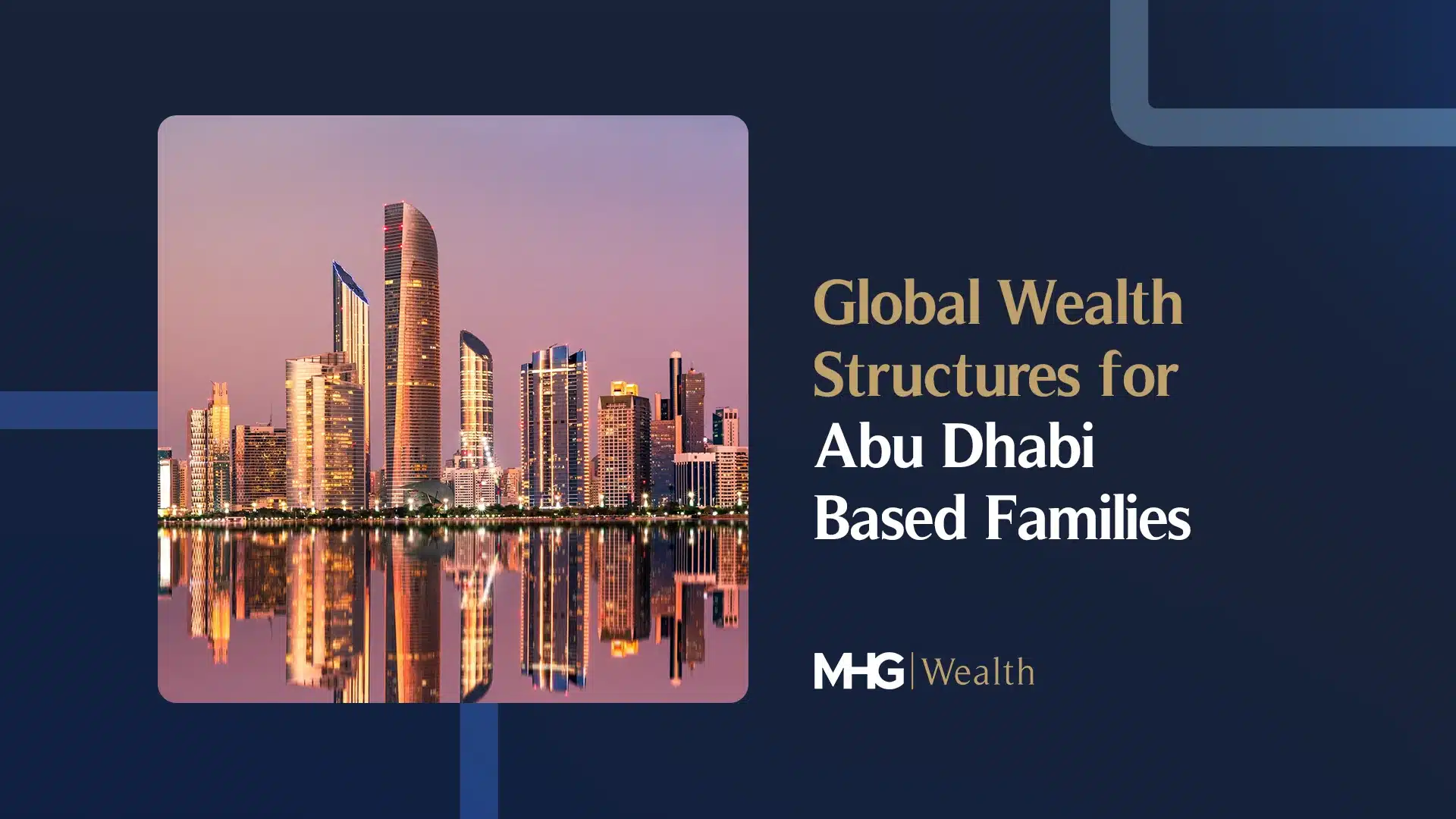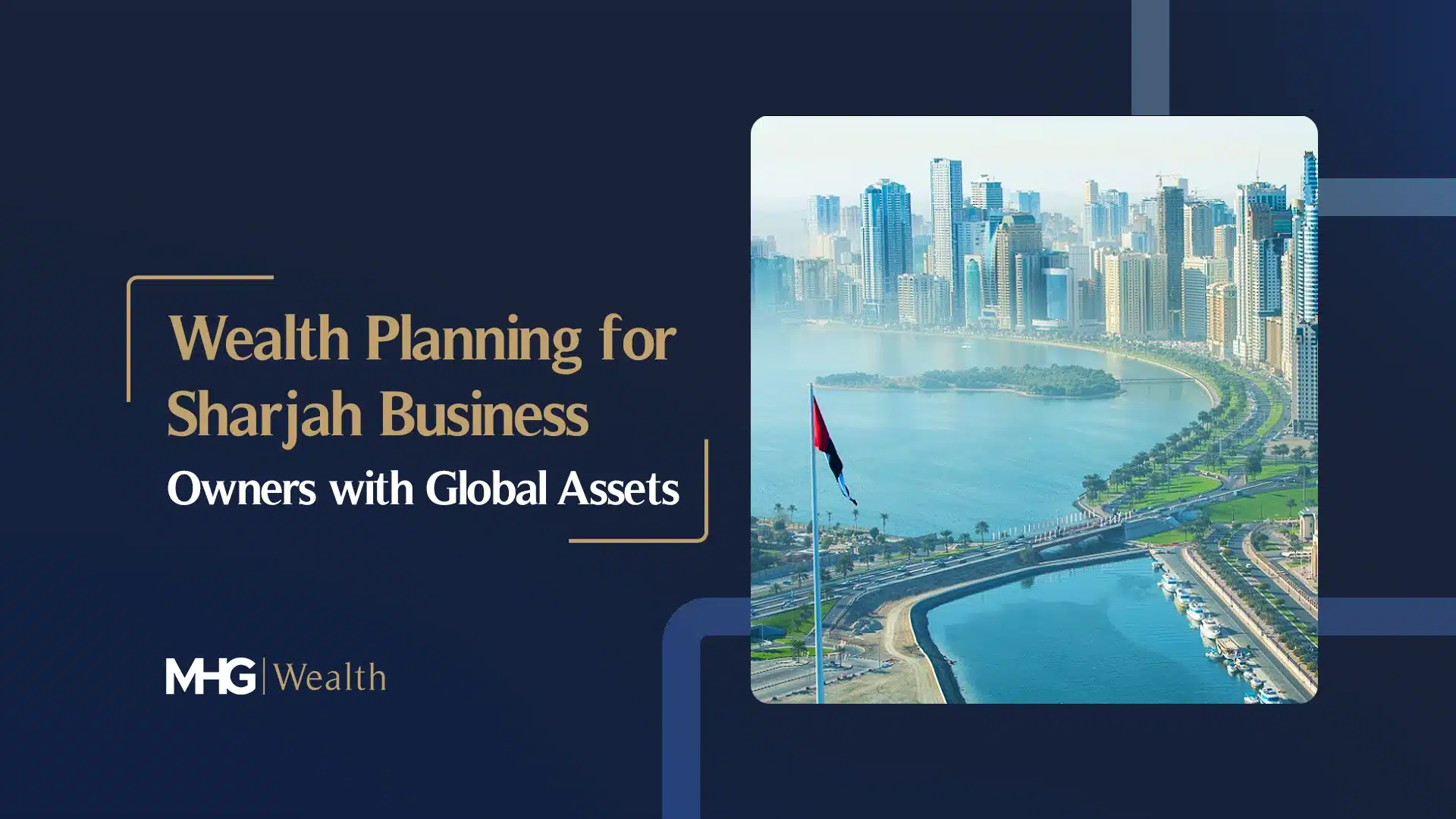Abu Dhabi has become one of the world’s most important centres for wealth and capital flows. With many families expanding their business interests and personal investments internationally, wealth management across borders is so important. From ensuring tax efficiency to protecting assets and enabling smooth succession, global wealth structures provide the foundation that allows Abu Dhabi families to preserve their legacies in an increasingly complex financial landscape.
In this article, we’ll highlight how:
- Global wealth structures are crucial for Abu Dhabi families to manage and protect wealth across borders amidst an increasingly complex financial landscape.
- These structures, including trusts, foundations, holding companies and family offices, facilitate estate planning, asset protection and compliance with international regulations.
- As Abu Dhabi families diversify globally, aligning local traditions with global best practices requires strategic planning and comprehensive wealth management solutions.
What Are Global Wealth Structures?
Global wealth structures are legal and financial frameworks designed to protect, manage and transfer wealth across generations and jurisdictions. These may include:
- Trusts, which separate legal ownership from beneficial ownership and provide flexibility for estate planning.
- Foundations, often used by families for governance, succession and long-term control of wealth.
- Holding companies, which consolidate ownership of international businesses, real estate and investments.
- Family offices, dedicated entities managing the investments, administration and legacy planning of wealthy families.
Internationally, such structures are essential to safeguard wealth, mitigate risks and ensure compliance with multiple legal systems. For Abu Dhabi families, they provide a way to bridge local traditions with global best practices.
Why Global Structures Matter for Abu Dhabi Families
High-net-worth families in Abu Dhabi are relying more and more on diversifying by seeking international opportunities. While the UAE offers a strong domestic framework, relying on local structures alone isn’t always sufficient for managing the complexity of global assets.
Recent changes, such as the UAE’s corporate tax regime, Common Reporting Standard (CRS) compliance and economic substance regulations, make it vital for families to plan more carefully. Proper structuring ensures smooth intergenerational wealth transfer, stronger asset protection and resilience in the face of shifting regulations.
Family Foundations in Abu Dhabi and Beyond
Family foundations are becoming a preferred tool for wealth preservation in Abu Dhabi. These allow families to formalise governance, separate personal from business assets and set long-term rules for wealth distribution.
Under UAE corporate tax law, Article 17(1) provides specific conditions for family foundations, including how they are treated compared to unincorporated partnerships. Families can also combine local foundations with multi-tier or international structures, giving them flexibility in how they manage and protect global wealth.
This balance of local recognition and international reach makes foundations particularly effective for Abu Dhabi families with both domestic businesses and overseas portfolios.
Cross-Border Considerations
For families with global exposure, wealth planning must account for multiple jurisdictions. Assets in London, Europe, Asia or North America may each carry distinct tax and compliance requirements. Tax residency rules, reporting obligations under OECD standards and inheritance laws all introduce new complexities.
Without proper structures, families risk double taxation, disputes over inheritance or even loss of control over key assets. Cross-border planning provides both clarity and security.
Learn more about our tax residency solutions and wealth planning services.
Investment Structures for Global Portfolios
Abu Dhabi families often diversify across private equity, hedge funds, real estate and direct business holdings. However, structuring how these investments are held is just as important as the investments themselves.
Holding companies can consolidate ownership and simplify reporting, while fund structures provide professional oversight and risk management. Families that invest directly may face higher exposure to liability and less flexibility in succession. Professional structuring balances control with protection.
Succession & Estate Planning
For Abu Dhabi families, succession planning has to take into consideration financial, cultural and religious aspects. Sharia law plays a central role in inheritance, but families can also make use of modern tools such as wills registered with DIFC or ADGM.
Combining wills with family trusts or foundations creates hybrid solutions that respect local values while offering international enforceability. The goal is simple: to protect family wealth, prevent disputes and ensure a seamless transition for future generations.
Challenges and Risks
Despite the benefits, global wealth structuring does have certain challenges that you need to be aware of. Regulatory compliance has become more demanding with the UAE’s corporate tax regime and international frameworks such as CRS and FATCA. Managing multi-jurisdictional entities requires deep expertise, and mistakes can be very expensive.
The key risk for families is underestimating the complexity, as using ad hoc or outdated structures can no longer meet global standards. The safest path is speaking to advisors with both regional insight and international structuring expertise.
Secure Your Family’s Financial Future
For Abu Dhabi families, wealth is no longer confined to one jurisdiction. International assets, multi-generational planning and constantly changing regulations mean you need to be proactive. Global wealth structures, like trusts, foundations, holding companies and family offices, provide the tools to protect assets, reduce risks and preserve legacies across generations.
Key takeaways:
- Effective wealth planning for global assets involves understanding tax residency, reporting obligations and succession laws to avoid pitfalls like double taxation and inheritance disputes.
- Cross-border planning with professional oversight is essential to balance asset control, risk management and flexibility for Abu Dhabi families.
- Partnering with advisors experienced in regional and international wealth structuring ensures that family legacies are preserved securely and smoothly across generations.
MHG Wealth specialises in helping Abu Dhabi families design and implement these structures, combining local expertise with international solutions.
Book a free confidential consultation with our wealth structuring team today.
FAQs
What are the main benefits of using a global wealth structure for Abu Dhabi families?
A global wealth structure provides asset protection, tax efficiency, succession planning and governance for multi-generational wealth.
How do UAE corporate tax rules affect family foundations?
Article 17(1) clarifies how family foundations are treated, giving them advantages compared to other structures such as partnerships.
Can Abu Dhabi families use offshore trusts or companies for tax efficiency?
Yes, but they must ensure compliance with UAE regulations, CRS and OECD frameworks.
How does global wealth structuring support succession and legacy planning?
It allows families to align Sharia considerations with international tools like wills and trusts, ensuring smooth wealth transfer.
What are the risks of not setting up a proper wealth structure?
Exposure to double taxation, legal disputes, regulatory penalties and weakened control over global assets.
How do wills in the UAE interact with global wealth structures?
UAE wills can be combined with international structures to provide clarity and enforceability across jurisdictions.





